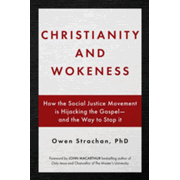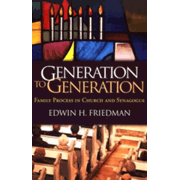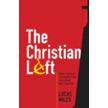FOR THE Twentieth Sunday after Pentecost we
continue reading from the Gospel According to Saint Luke. Within the text
singularly offered by our author, we have a very relevant teaching about
humility.
He
(Jesus) also told this parable to some who trusted in themselves that they were
righteous and despised others…
“Two men went up into the temple to pray, one
a Pharisee and the other a tax collector. The Pharisee stood and prayed thus
with himself, ‘God, I thank thee that I am not like other men, extortioners,
unjust, adulterers, or even like this tax collector. I fast
twice a week, I give tithes of all that I get.’
But the tax collector, standing far off, would
not even lift up his eyes to heaven, but beat his breast, saying, ‘God, be
merciful to me a sinner!’
I tell you, this man went
down to his house justified rather than the other; for everyone who exalts
himself will be humbled, but he who humbles himself will be exalted.” (Luke
18:9-14)
 |
Christianity and Wokeness By Owen Strachan |
Identity
Crisis!
In the telling of this scene, Luke does not concretely
identify the persons to whom our Lord Jesus is speaking. However, from the
context found within the introductory sentence… we may guess that Luke notably related
this to the whole audience of Christian congregations, many of which had been expelled from the Jewish synagogues. Many of them had formed what we know as house churches.
The warning given to us clearly
states that there is great danger for those who declare a higher status in
righteousness than others. The story Jesus told used the comparative examples
of a strict Pharisee… and a lowly, detested tax collector. Jesus stated that
the attitude each held governs the person’s justification before God. Therefore
we know that Jesus, through his servant Luke, is noted as favoring those who
come before God with confession and humility.
In historical
context of the time, it seems that Luke offered this teaching during that era of Church
growth in the late first century. Indeed, this was a time when two main
factions of the Church maneuvered for priority. In considering this evidence
then, a revelation may be found for us in that the two very human examples that
Jesus gave… a Pharisee and a tax collector... represent more than themselves. We
might ask whether these two characters used in the story, which were held high during
this stage of Jesus’ ministry, prophetically described the personalities of two
differing Church factions. It might be said that the infant churches were modeling a hierarchical social structure they had known within the mainstay of Jewish diaspora. These came into prominence decades after the
Ascension of Our Lord.
When the event
originally occurred in prior years, separate smaller groups were germinating within the ranks of
the disciples. These were present even during the time of Jesus’ ministry. The maneuvering of
James and John for seats alongside Jesus when he would come into power is a
prime example of this fledgling tilt. The inclinations remained and the
disciples were competitive even after his death and Resurrection.
Though empowered
under the guidance of the Holy Spirit, the organization of the Church quickly divided
along theological, traditional and territorial lines. The first group we notice was brought to the forefront under the influence of Peter and the
apostles. However, by the time of Luke’s writing, all of the original twelve
apostles were gone. They had dispersed as requested across the known world in
their apostolic fervor… and were either martyred or had died in elderly years.
The second group
was centered around James and our Lord’s brothers. These wanted to keep
Jerusalem and Judaic traditions as the focus of the Christian movement. Most of
these leaders were killed off or scattered afar by the Romans purge of Jerusalem in the late
‘60s. Subsequently, their influence was felt in the dispersion of Christians primarily to
places in Asia Minor, Egypt and Syria.
By the late
first century the Church was left with two main Christian factions. The
Hellenist Christians, were collectively derived from followers of Philip, Paul and his Gentile
group. These were those who at first embraced the use of Greek Septuagint for
worship and scripture reading. They included proselytes central to Asia
Minor. These Hellenists flexed in virtual religious practice over against the purist
Jewish stubbornness in Hebrew custom and synagogue, those who wanted to use strict
adherence to the prayers and traditions that had meant much to such legalistic people as
the Pharisees. These Pharisaic “Judaizers” were prayerfully demonstrative of their
adherence to the Law, dietary restrictions and circumcision as a sign of their
commitment and holiness. As Christians they claimed a historical priority, while the other factions
of Gentiles accepted their lowliness, comparative ignorance and dependence upon
God’s merciful action made through Jesus Christ.
Using this historical
context then, we can form an opinion that this text written by Luke related
that Jesus would not approve in the Spirit of the rank competition occurring
between those in Luke’s provinces and the Judaic Christian gatherings centered in
Antioch of Syria. I believe that Luke was chiding both his own diaspora Hellenist synagogues and the Syrian churches by emphasizing the piety of the tax
collector.
You see, we
know that in Israel and other provinces of Rome, the tax collector was thought
of as a social outcast. As well, the fact was well known by the Church that a man named Levi was a tax collector. Having been a disciple…. he was renamed Matthew by
Jesus. He had become an apostle and had been subsequently tied to the
activities of one of the two remaining factions within the early Church. The
Gospel According to Matthew is said to have its roots in Antioch of Syria, and
is yet attributed to him. Additionally, we need consider that Matthew’s gospel
is claimed to have been written in final form during that same time frame as
the Gospel According to Saint Luke.
Given this
history, I ask, “Was Luke exclusively chastising the competitive, divisive and destructive characters
in the Christian witness of the day?” If so, what does this say to our modern
churches? Given this assumption, I believe we can award prophetic foresight to
our Lord. Jesus knew his followers to the depths of their souls. He knew them,
and we ourselves as sinners. Indeed we are sinners made saints through
him.
 |
Generation to Generation: Family Process in Church and Synagogue By Edwin H. Friedman |
Shortly after
the time of our Lord’s crucifixion… the infant Church divided into two main factions, each having its own agenda. As proof, we note that the earliest
letter of Saint Paul to the church in Galatia attests to the tension that grew between
Peter and Paul over the Christian Greeks. Peter drew back from collectively
dining when the representative of James arrived. He suddenly refrained from eating
non-kosher foods. Consequently, we see here in our Lord’s final statement a concern
that we opt for a better way. Luke presented that Jesus himself said that the
one who is truly justified is the downcast one who knows and confesses any
haughty sin, and begs that God would show mercy. Thus undue Jewish piety was called into question.
Passing the Test?
As participants in a Christian Church
that should work to declare the good news of salvation in the modern world, we therefore
might pause to consider just how we might be described by our Lord. Who are we
in comparison with the various expressions of the Christian faith? Do we too
liberally claim more civil “rightness” than “those others” in order to
gather greater pew attendance? Do we haughtily claim to be the most pure in our
theology or most faithful in our following of religious traditions? Or rather, do
we above all wish to be counted as those who simply confess our sinfulness… both
individually and collectively… and rest our future work in ministry solely upon
the forgiveness supplied through the love and sacrifice of Christ Jesus?
I say to all that
we need be in the work of Christian reconciliation. This includes dialog with those denominations and congregations deemed as apostate without compromising the right witness of scripture . I say to you that in hearing such prophetic
words here, we need to beat upon our chests as we realize our need of the Holy
Spirit’s guidance. We need to stand as guided by that same Spirit with our eyes cast down…
and be driven to confess by saying with Christians one and all.., “Lord… be
merciful to me, a sinner.”
May the Peace of God Be With You Always!



No comments:
Post a Comment